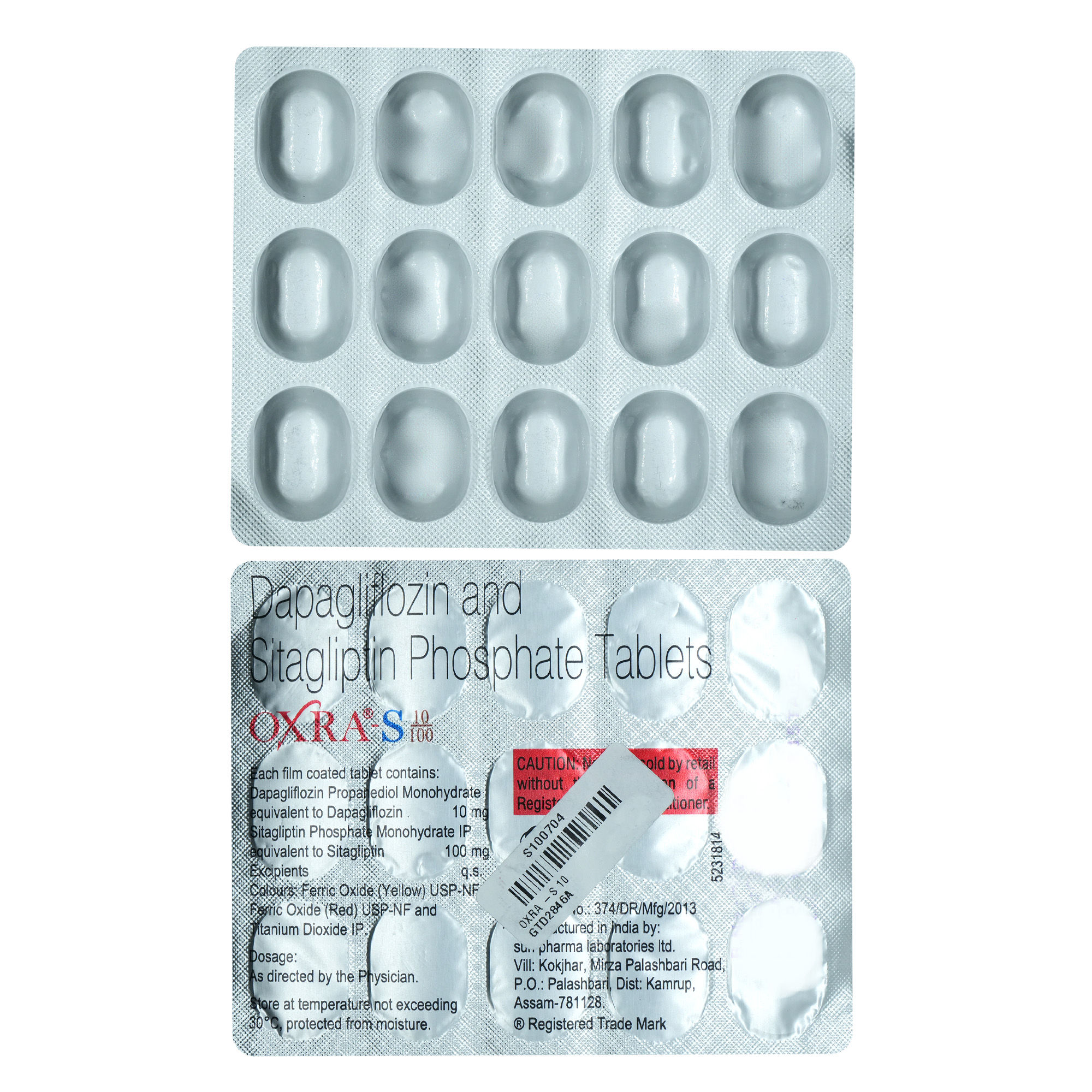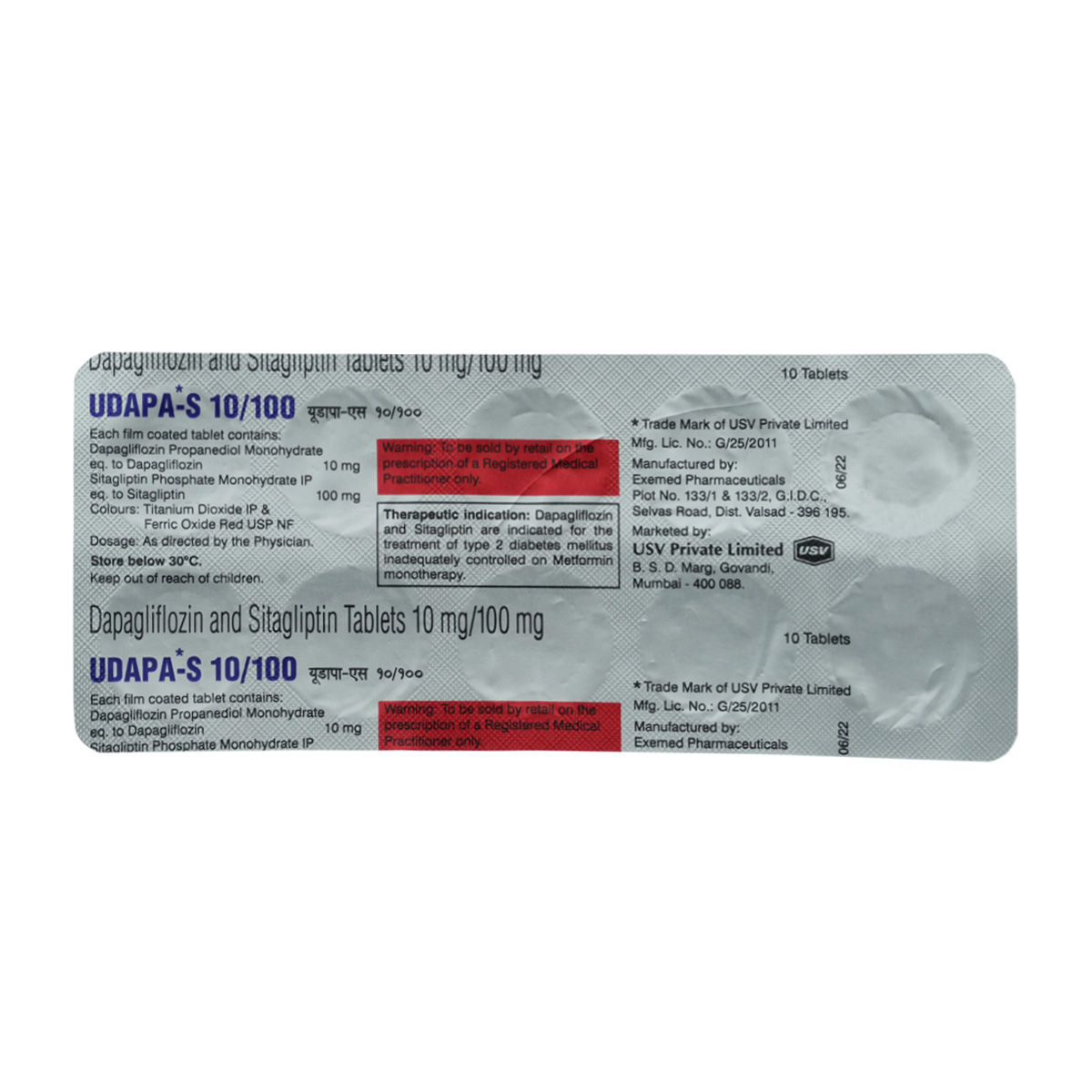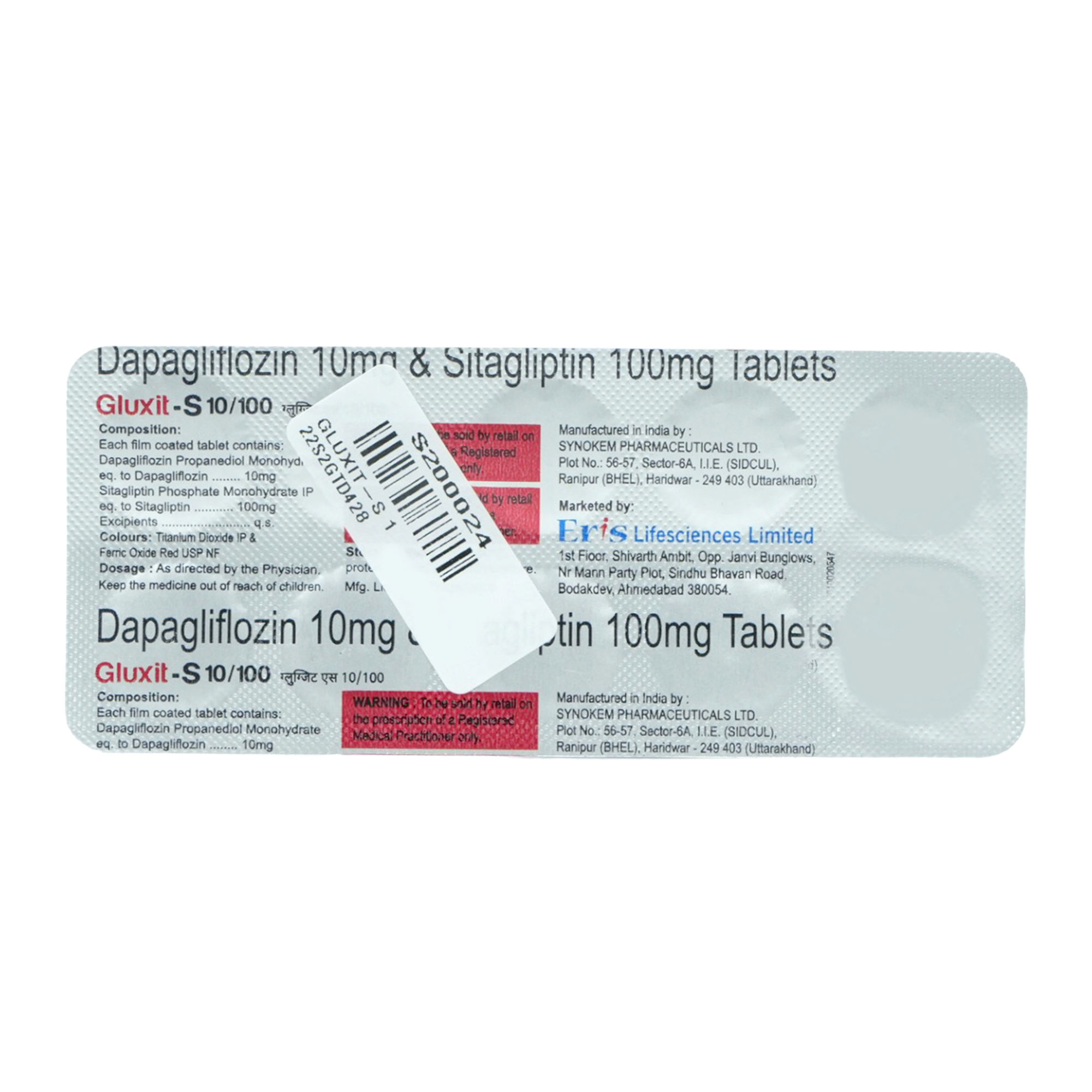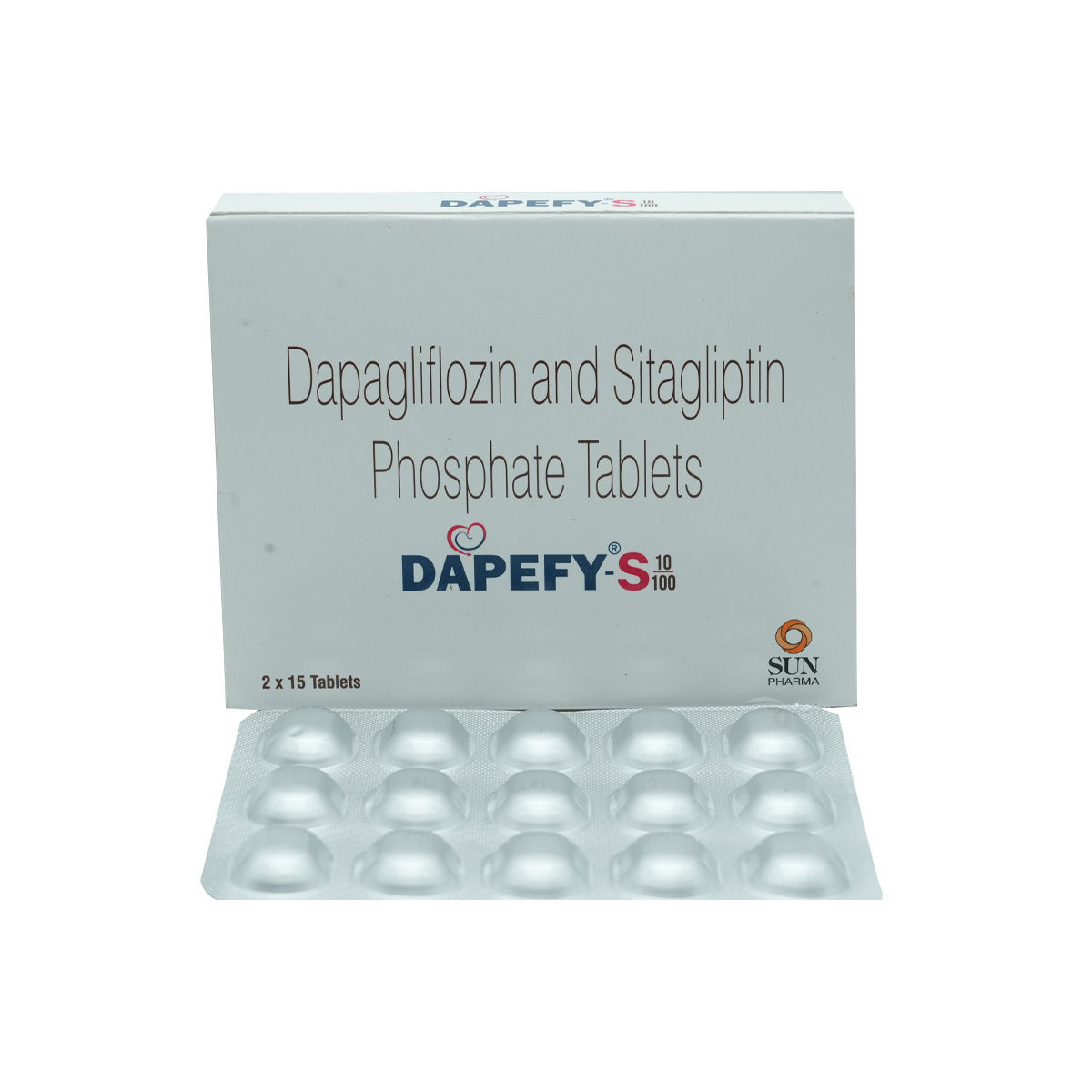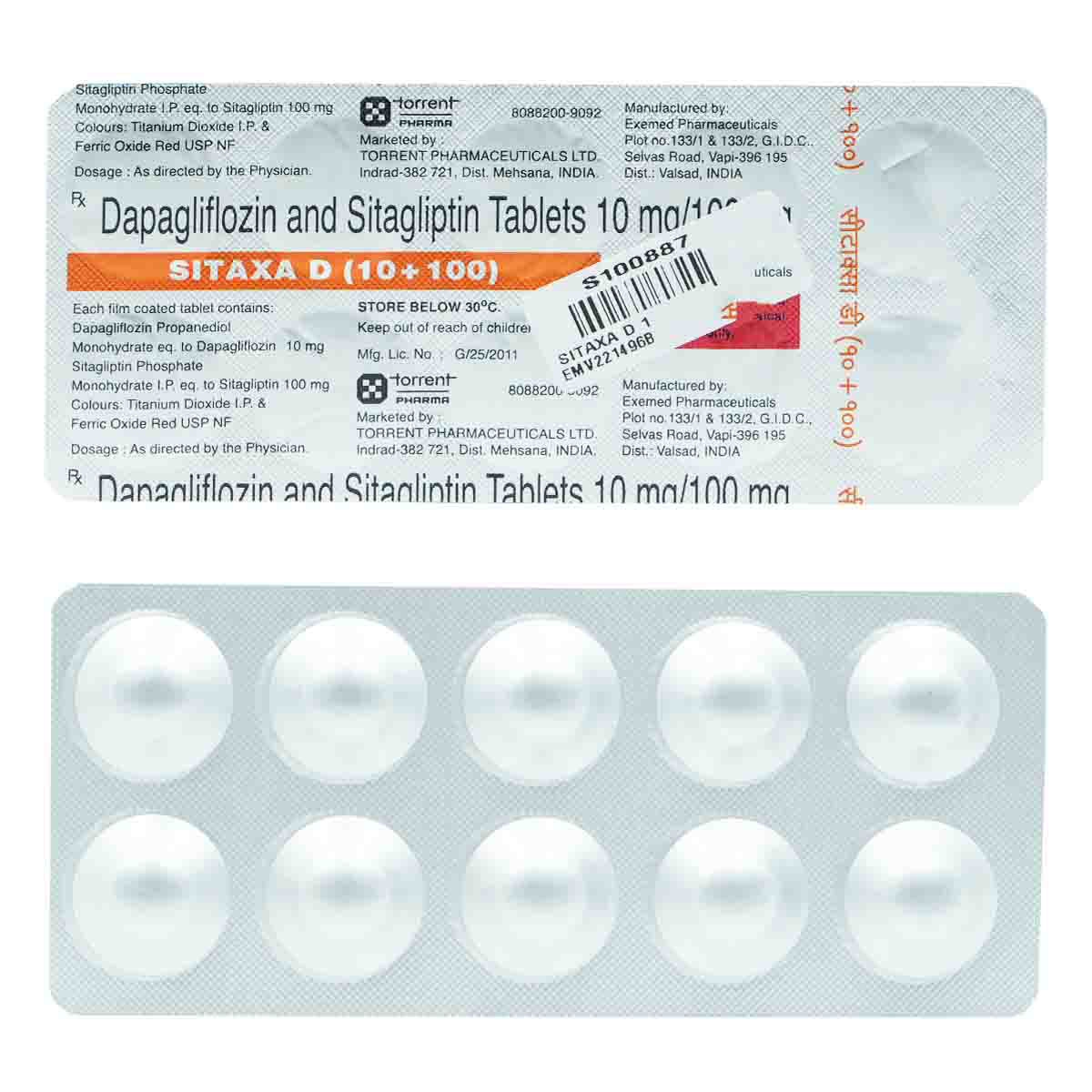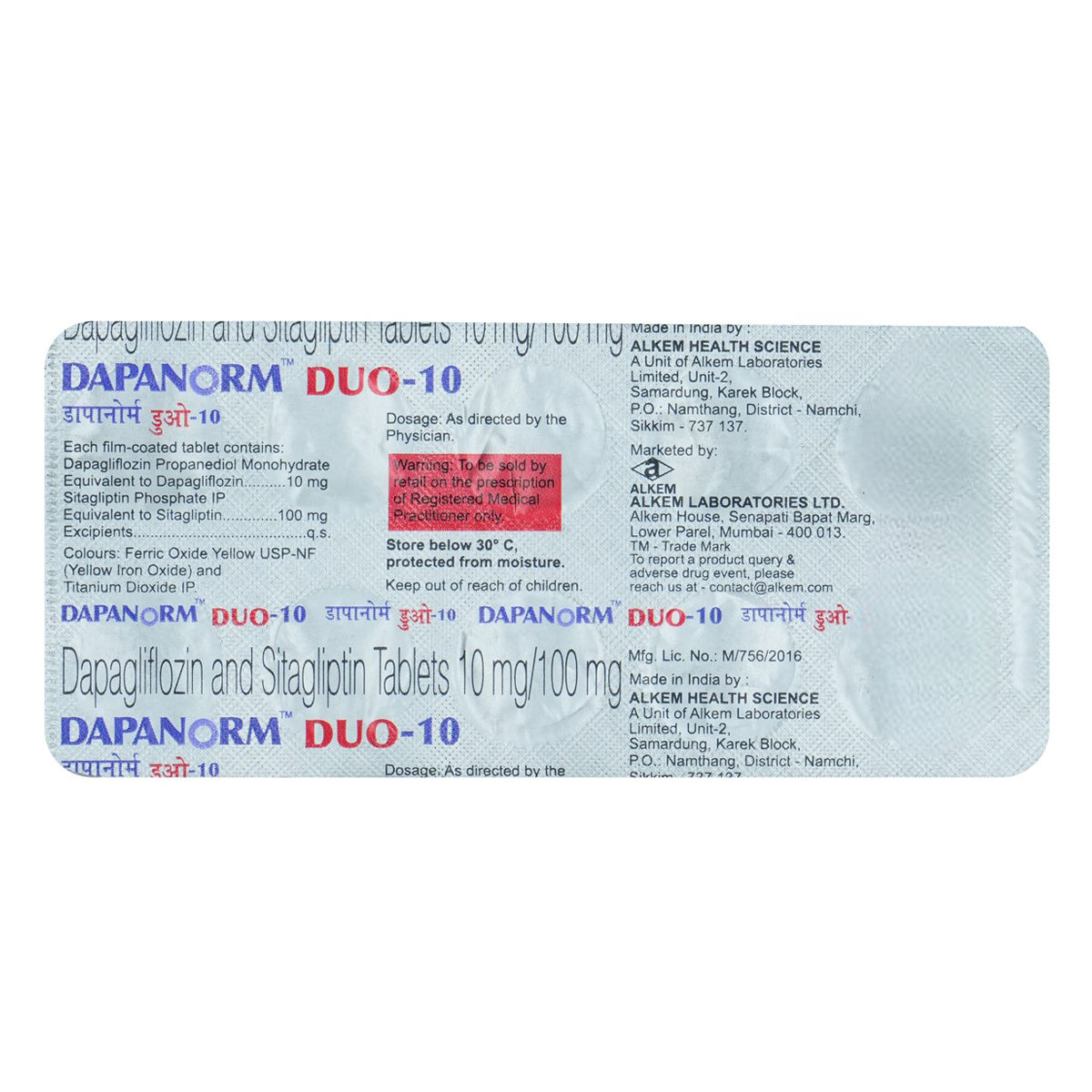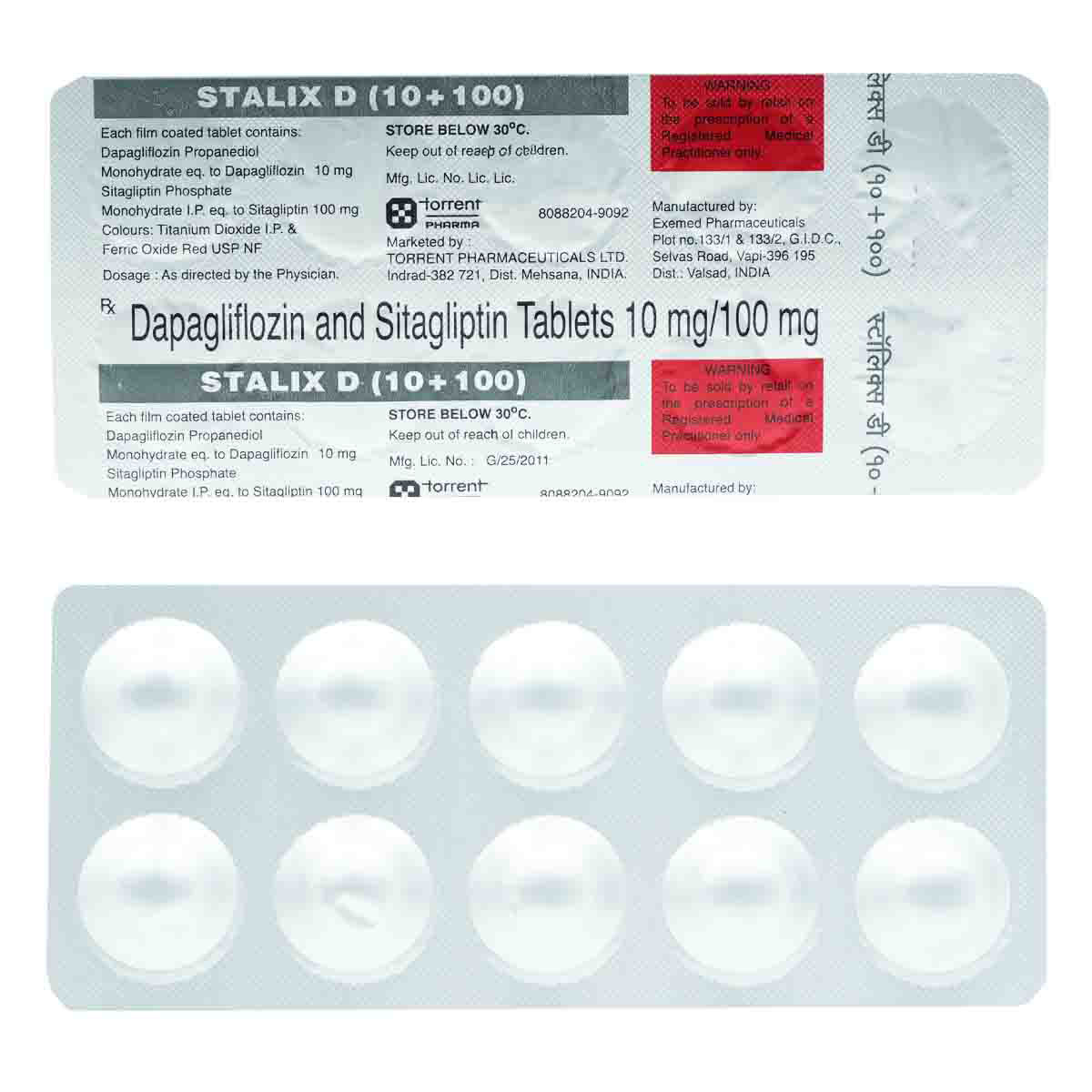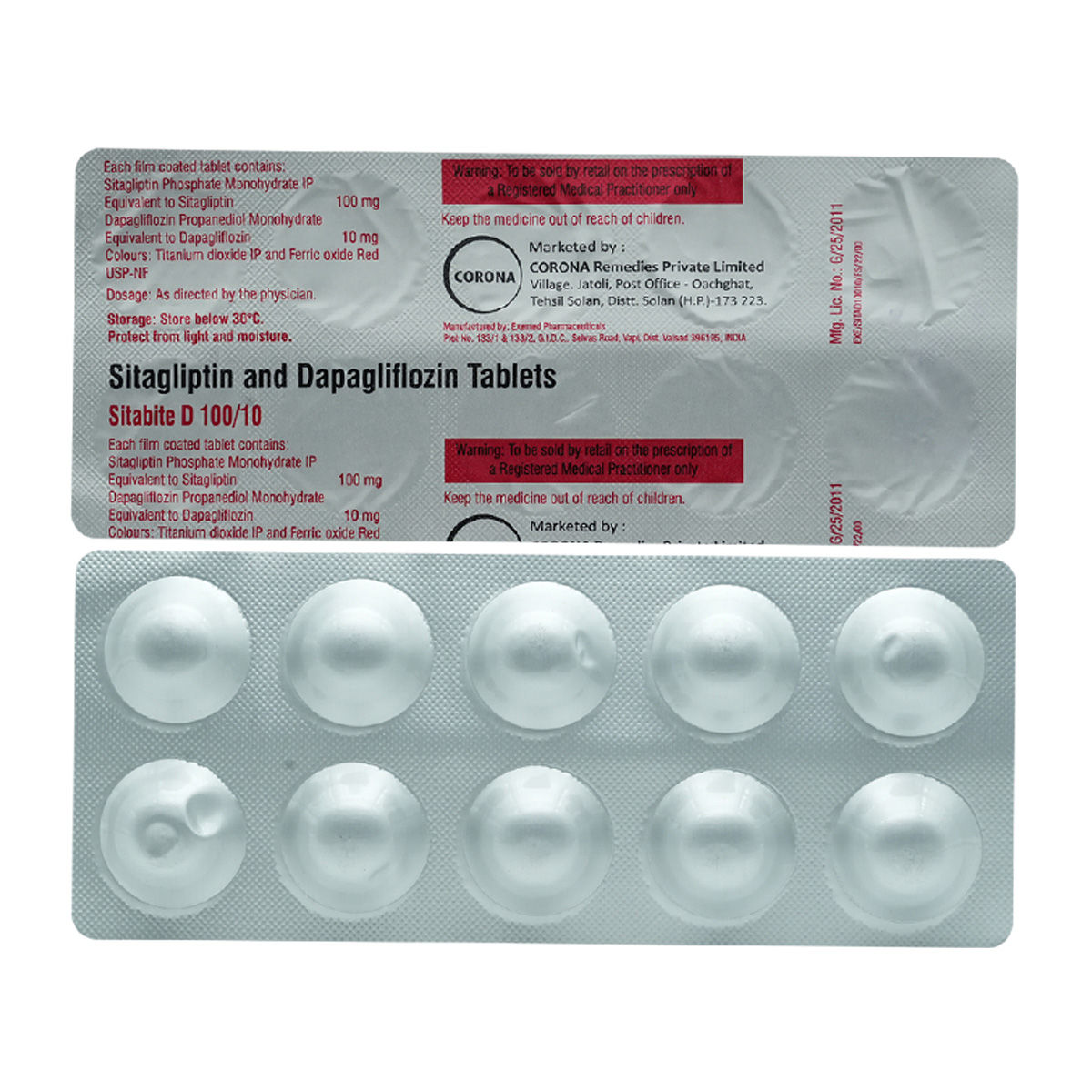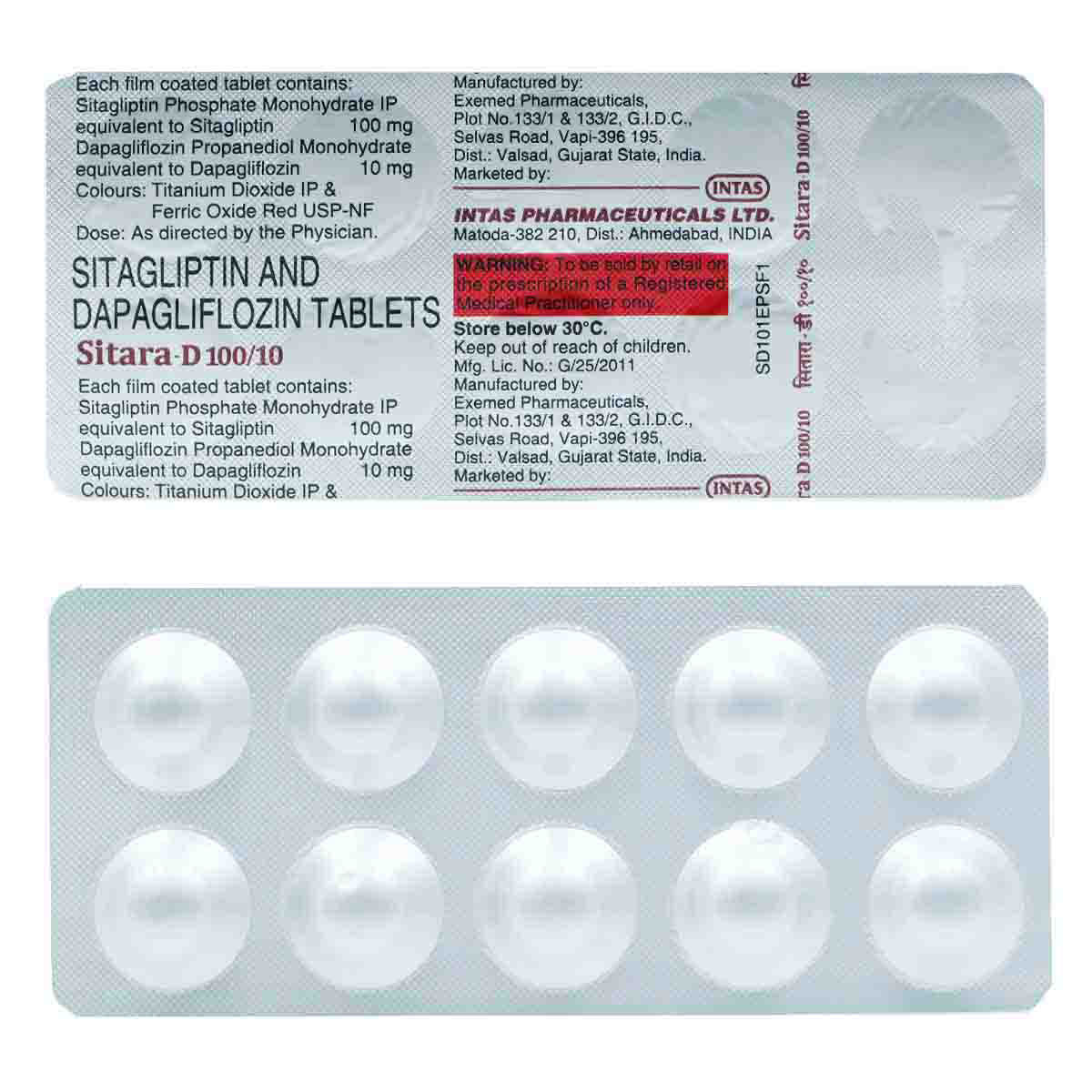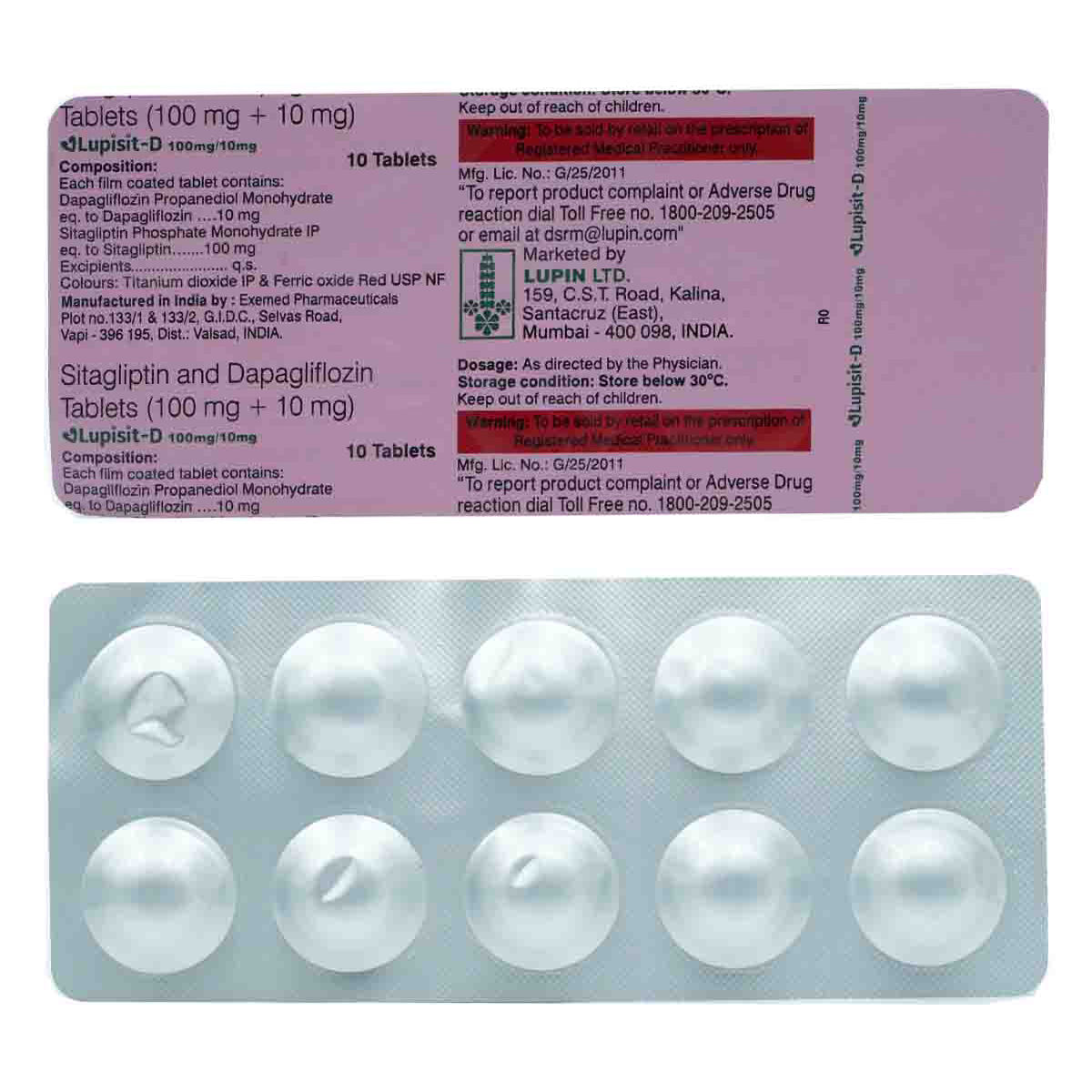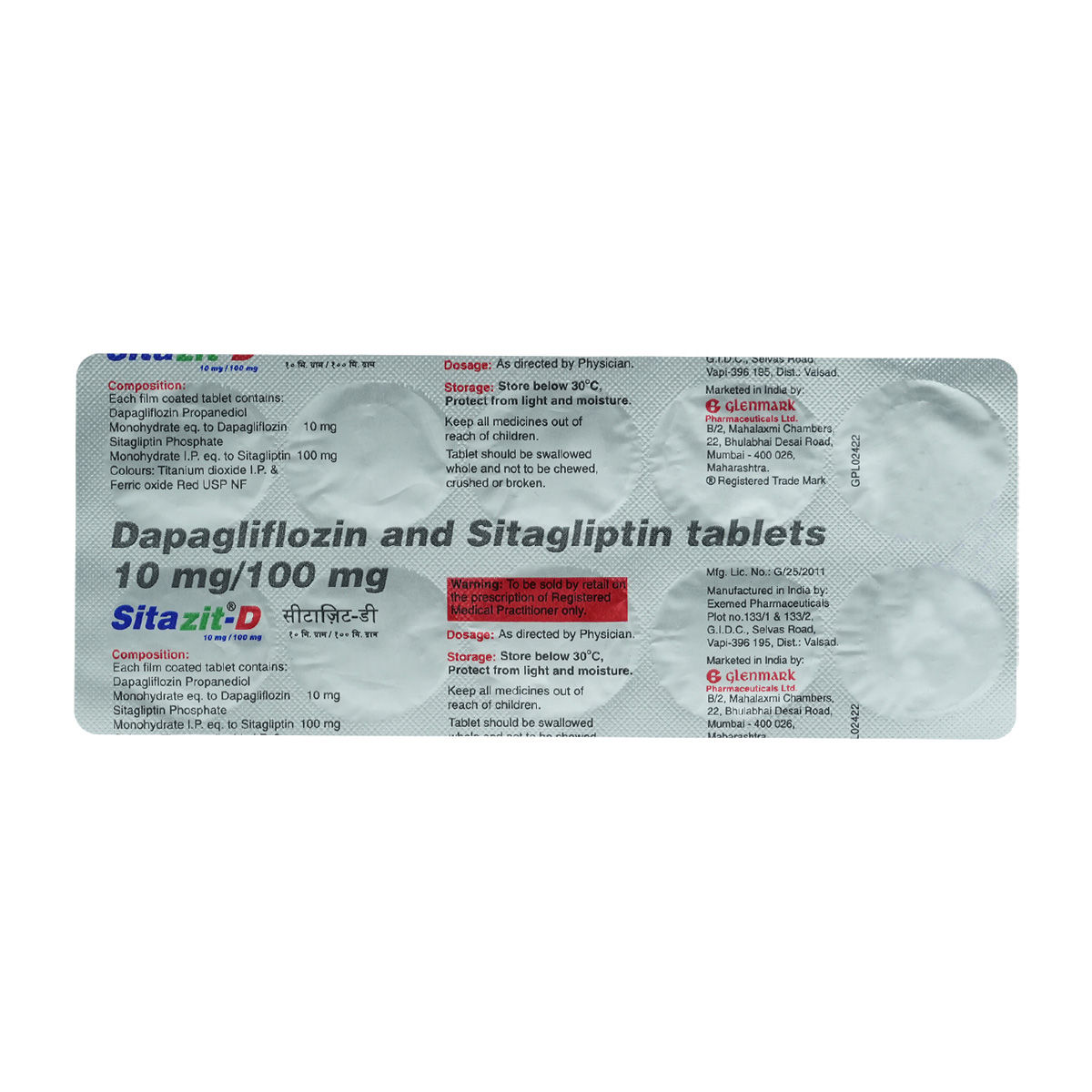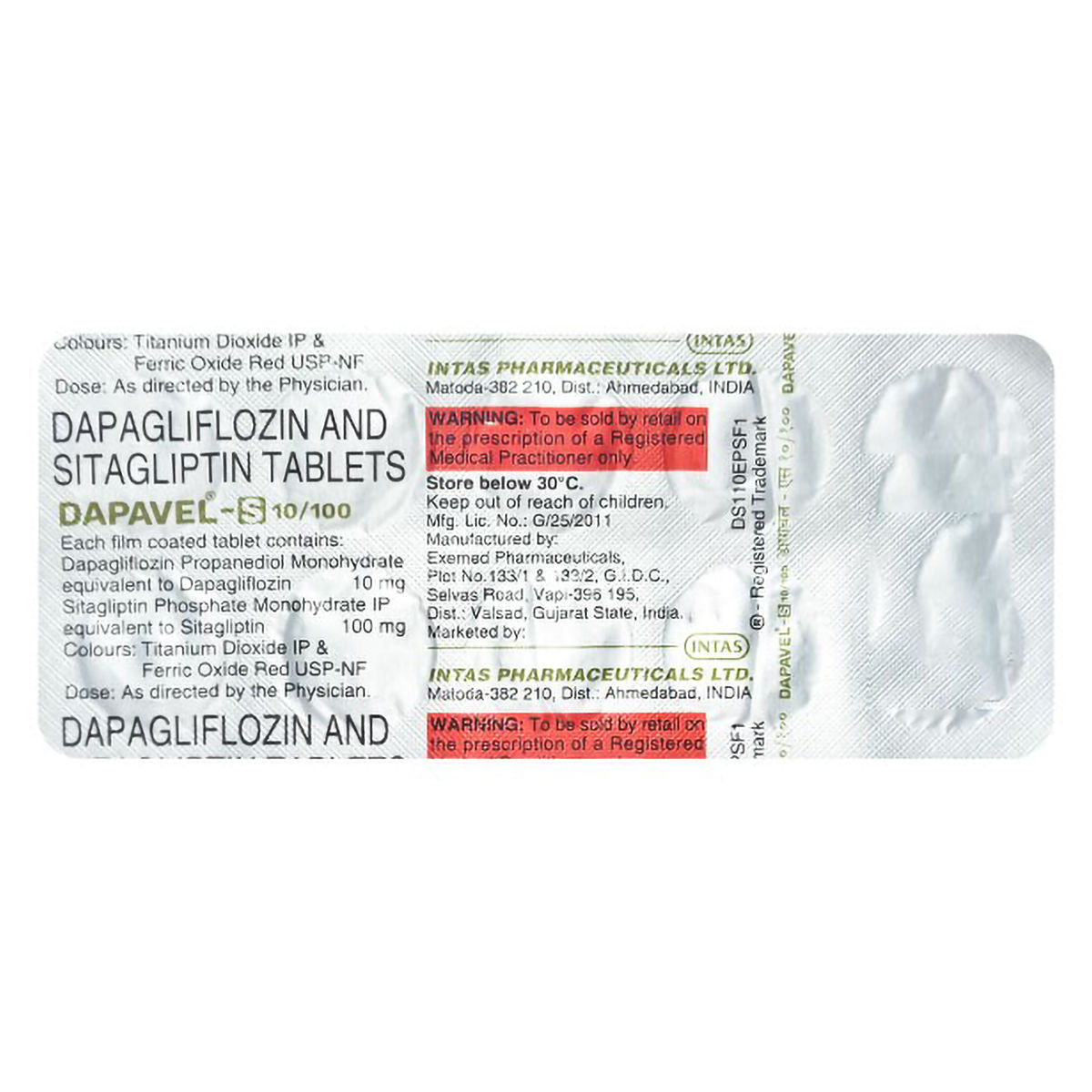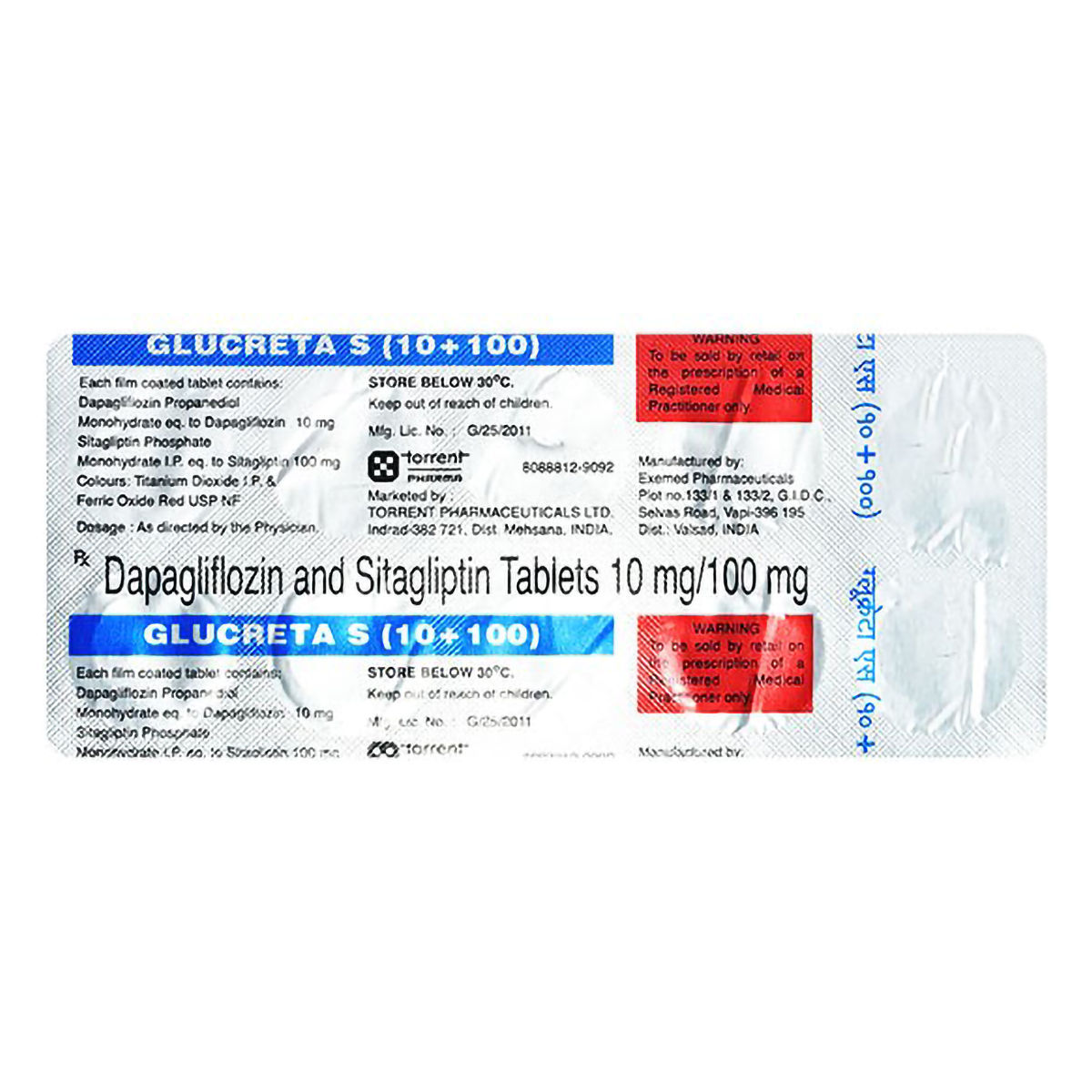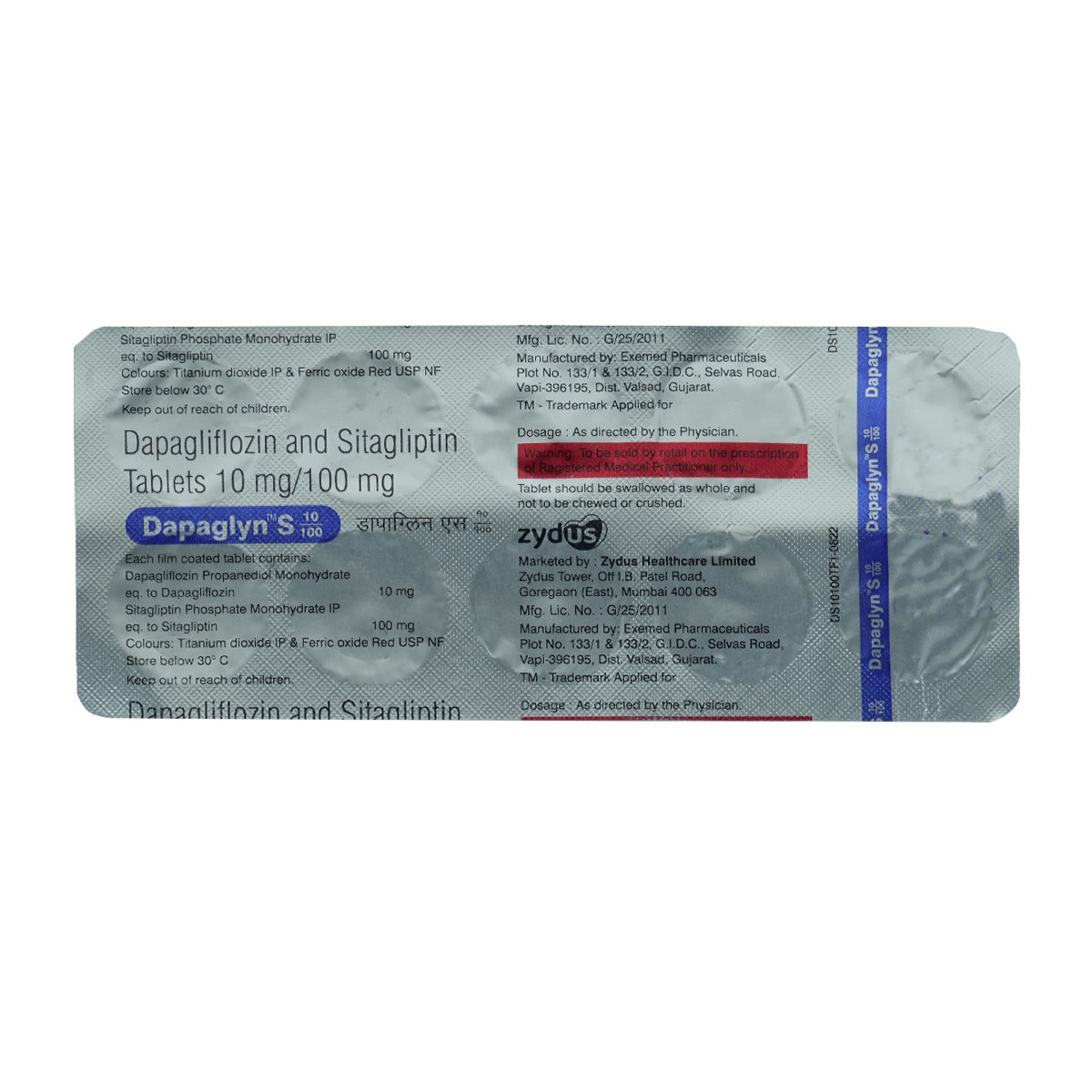Sitagrit D 100 mg/10 mg Tablet 10's
Sitagrit D 100 mg/10 mg Tablet 10's is used to treat type-2 diabetes mellitus. It contains Dapagliflozin and Sitagliptin. Dapagliflozin lowers blood glucose levels and increases glucose excretion in the urine. By improving insulin levels and lowering glucagon levels (the hormone that raises blood glucose levels), sitagliptin decreases the amount of glucose the liver produces. Thus, it helps control blood sugar levels. Common side effects of this medicine include diarrhoea, hypoglycaemia, headache, nausea, and vomiting.
₹185*
₹157.25*
MRP ₹185
15% CB
₹27.75 cashback(15%)
Free Delivery
With Circle membership
(Inclusive of all Taxes)
This offer price is valid on orders above ₹800. Apply coupon PHARMA10/PHARMA18 (excluding restricted items)
Know Your Delivery Time
Provide Delivery Location

Whats That

Secure Payment

India's Most Trusted Pharmacy

Genuine Products
Composition :
Manufacturer/Marketer :
Consume Type :
Return Policy :
About Sitagrit D 100 mg/10 mg Tablet 10's
Sitagrit D 100 mg/10 mg Tablet 10's is used to treat type-2 diabetes mellitus. Type-2 diabetes mellitus (also known as non-insulin-dependent diabetes or adult-onset diabetes) is a medical condition in which blood glucose levels are above normal due to insulin deficiency, insulin resistance, or both.
Sitagrit D 100 mg/10 mg Tablet 10's contains Dapagliflozin (sodium-glucose cotransporter-2 inhibitors) and Sitagliptin (dipeptidyl peptidase-4 inhibitor). Dapagliflozin lowers blood glucose levels and increases the excretion of glucose in the urine. By increasing insulin levels and lowering glucagon levels (the hormone that raises blood glucose levels), sitagliptin decreases the amount of glucose the liver produces. Thus, Sitagrit D 100 mg/10 mg Tablet 10's helps control blood sugar levels.
Sitagrit D 100 mg/10 mg Tablet 10's may cause side effects such as diarrhoea, hypoglycaemia, headache, nausea, and vomiting. These effects do not require medical attention and gradually resolve over time. Inform your doctor if any of these side effects persist or bother you. Take Sitagrit D 100 mg/10 mg Tablet 10's as prescribed by your doctor.
Sitagrit D 100 mg/10 mg Tablet 10's should be avoided if you are allergic to any of the components in it. Inform your doctor if you are pregnant or breastfeeding. Let your doctor know about all the medicines you are taking and your health condition to rule out any unpleasant side effects/interactions.
Uses of Sitagrit D 100 mg/10 mg Tablet 10's
Directions for Use
Medicinal Benefits
Sitagrit D 100 mg/10 mg Tablet 10's is a combination medicine containing Dapagliflozin and Linagliptin as active ingredients. Dapagliflozin helps in removing excess sugar from the body via urine. Linagliptin works by decreasing the hormones that raise blood glucose levels and increasing insulin release from the pancreas. Together, Sitagrit D 100 mg/10 mg Tablet 10's helps control blood sugar levels.
How Sitagrit D 100 mg/10 mg Tablet 10's Works
Storage
Side Effects of Sitagrit D 100 mg/10 mg Tablet 10's
- Stomach upset
- Hypoglycaemia (low blood sugar levels)
- Nausea
- Vomiting
- Diarrhea
- Headache
- Constipation
- Dizziness
- Runny nose
- Sore throat
What if I have taken an overdose of Sitagrit D 100 mg/10 mg Tablet 10's
Drug Warnings
Do not take Sitagrit D 100 mg/10 mg Tablet 10's if you are allergic to any of its components. Inform your doctor about all the medicines you are taking and your health condition to rule out any unpleasant side effects. Inform your doctor if you have any liver/kidney disease, heart problems, and hypertension before taking Sitagrit D 100 mg/10 mg Tablet 10's. Sitagrit D 100 mg/10 mg Tablet 10's is not recommended for children as safety and effectiveness have not been established. Avoid alcohol consumption while taking Sitagrit D 100 mg/10 mg Tablet 10's as it might cause unpleasant side effects. It is unknown whether Sitagrit D 100 mg/10 mg Tablet 10's can be given to pregnant women or breastfeeding mothers. Hence, inform your doctor if you are pregnant or breastfeeding. It is not recommended for use in children below 18 years of age.
Diet & Lifestyle Advise
- Eat foods rich in healthy carbohydrates and fibre, fruits, whole grains, and vegetables.
- Try eating food at regular intervals. Do not skip meals. Also, try not to overeat.
- Follow a healthy diet and walk/exercise for at least 45 minutes.
- Maintain a healthy weight by exercising regularly.
- Rest properly and avoid stress by doing meditation or yoga.
Habit Forming
Therapeutic Class
Sitagrit D 100 mg/10 mg Tablet 10's Substitute

Istavel D 10/100 Tablet 15's
₹19.26per tabletOxra-S 10 mg/100 mg Tablet 15's
₹19.26per tabletUdapa-S 10 mg/100 mg Tablet 10's
₹17.82per tabletGluxit-S 10 mg/100 mg Tablet 10's
₹20.79per tabletDapefy-S 10/100 Tablet 15's
₹17.70per tablet
Product Substitutes
Alcohol
Unsafe
Avoid consumption of alcohol during treatment with Sitagrit D 100 mg/10 mg Tablet 10's as it may cause serious side effects.
Pregnancy
Consult your doctor
If you are pregnant or planning pregnancy, inform your doctor before starting treatment with Sitagrit D 100 mg/10 mg Tablet 10's. Your doctor may prescribe this medicine if the benefits outweigh the risks.
Breast Feeding
Consult your doctor
Limited data is available on the effect of Sitagrit D 100 mg/10 mg Tablet 10's on breastfeeding. Hence, if you are a nursing mother, inform your doctor before taking Sitagrit D 100 mg/10 mg Tablet 10's. Your doctor may prescribe this medicine if the benefits outweigh the risks.
Driving
Caution
Sitagrit D 100 mg/10 mg Tablet 10's may occasionally cause dizziness. Hence, drive only if you are alert after taking this medicine.
Liver
Consult your doctor
If you have a pre-existing or a history of liver disease, inform your doctor before taking Sitagrit D 100 mg/10 mg Tablet 10's. Your doctor may adjust the dose of this medicine or prescribe a suitable alternative based on your condition.
Kidney
Consult your doctor
If you have a pre-existing or a history of kidney disease, inform your doctor before taking Sitagrit D 100 mg/10 mg Tablet 10's. Your doctor may adjust the dose of this medicine or prescribe a suitable alternative based on your condition.
Children
Unsafe
Sitagrit D 100 mg/10 mg Tablet 10's is not recommended for use in children below 12 years of age as the safety and efficacy are not established.
FAQs
Country of origin
Manufacturer/Marketer address
Disclaimer
Author Details
We provide you with authentic, trustworthy and relevant information
Reference
- https://careformulationlabs.com/sitadose-d-100-10.html
- https://www.biospectrumindia.com/news/95/21584/-glenmark-launches-sitagliptin-for-adults-with-type-2-diabetes-in-india.html
- https://www.leeford.in/product/3379/dapzigard-s-100
- https://www.accessdata.fda.gov/drugsatfda_docs/label/2020/202293s020lbl.pdf







